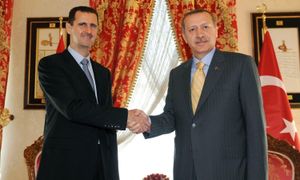Across the globe, Vietnamese language programs are gaining traction as cultural bridges for both Vietnamese expatriates and non-Vietnamese students eager to connect with the rich heritage of Vietnam. Notably, Columbia University has emerged as one of the leading institutions fostering this connection.
The Vietnamese Studies program at Columbia, spearheaded by professors Liên Hằng Nguyễn and John Phan, is unique as it is reportedly the only program of its kind featuring two dedicated faculty members focused exclusively on Vietnamese studies. The program combines both language instruction and cultural education, offering courses on Vietnamese history, literature, and societal norms.
Master’s degree holder Nguyễn Phương Chung, also involved at Columbia as the Director of the Vietnamese language program, observes the growing enthusiasm among American students for learning Vietnamese. He notes two primary groups among the students: those of Vietnamese descent and non-Vietnamese students fascinated by the language. Many of the Vietnamese American students express their desire to forge connections with their roots, using language as a tool to explore their cultural identity.
Chung enthuses, “For many of these students, learning Vietnamese is about more than just memorizing vocabulary; it’s about discovering the nuances of family interactions and the unique attributes of Vietnamese culture surrounding kinship, respect, and communal ties.” This bonding aspect helps address language barriers experienced within many Vietnamese American families, where generational gaps often hinder communication.
Complementing the academic programs, cultural events play an integral role. Recently, the Vietnamese Culture Day was celebrated at the Vietnamese Consulate in Osaka, Japan, where local students showcased their language skills and cultural pride. This event featured performances, including poetry readings, singing, and traditional plays, such as the beloved folk tale “Tấm Cám.”
Shimizu Masaaki, head of the Vietnamese program at Osaka University and organizer of the Culture Day event, underscored the importance of such gatherings. “This is a special program aimed to honor and preserve Vietnamese cultural identity, educate patriotism, and encourage students from both Vietnam and Japan to closely understand and respect each other,” he stated. Events like this help reinforce friendships and cultural exchanges between nations.
Ngô Trịnh Hà, Vietnam’s Consul General in Osaka, commended the outreach efforts of the Vietnamese Studies Center, emphasizing the value of promoting Vietnam’s culture and history. His remarks reflected the broader commitment from the Vietnamese government to engage its diaspora through education and cultural initiatives.
At the heart of Chung’s teaching philosophy is the idea of language as not merely a communicative tool but as a bridge for international friendship. He articulates how learning Vietnamese unveils the essence of being Vietnamese, allowing students to partake actively as cultural ambassadors. “Teaching Vietnamese has become not just about language but about connecting those abroad with their roots and opening doors for international friendships.”
On the horizon, the Vietnamese Studies Center aims to facilitate more prominent cultural exchanges and innovative educational resources. Director Lê Thương expressed excitement about their upcoming project, the publication of “A Brief History of the Vietnamese Language.” This illustrated book, translated to Japanese, aims to serve as a gateway for Japanese students and Vietnamese expatriates to deepen their knowledge of Vietnam’s linguistic heritage.
The cultural event closed with genuine applause, signaling joy and appreciation from attendees who felt touched by the vibrant displays of Vietnamese culture. Performances by students from different backgrounds demonstrated the shared commitment to deepen mutual respect and collaboration. This successful gathering at the Vietnamese Consulate highlights the enduring interest and enthusiasm for Vietnamese culture globally.
Overall, these Vietnamese language programs and cultural events are not only educational but also weave together the threads of identity, history, and community for individuals across different backgrounds. They represent the future of cultural preservation and the bridging of diverse societies through shared language and mutual appreciation.



